Alix Di Jusco in conversation with Ayla Pierrot Arendt
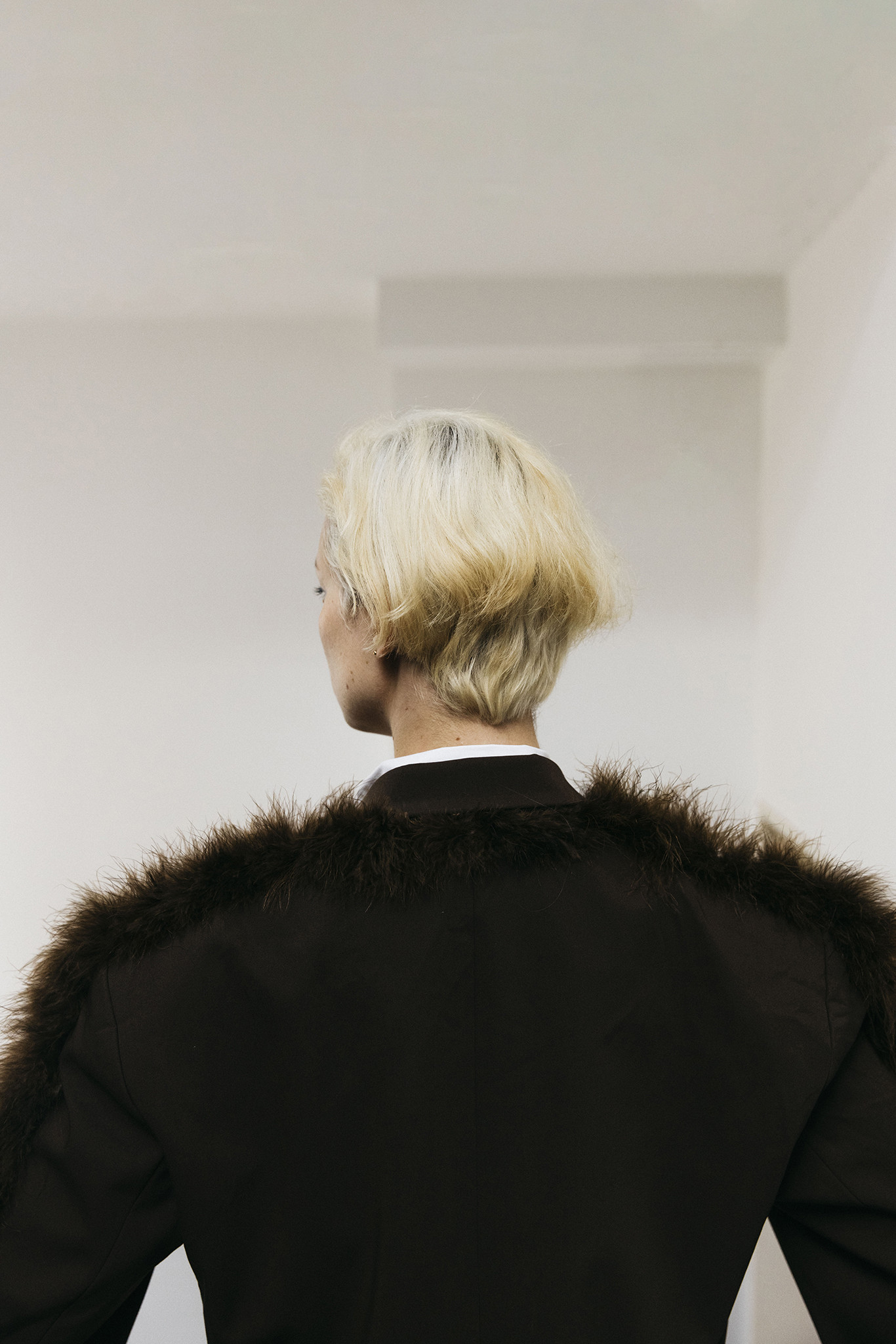
The Voluntary Chancellor, 2023. Photography: Eike Walkenhorst
Alix Di Jusco: I am very pleased to have this conversation with you. We first connected in April 2022 when you took me under your wing to assist you in the creation of your performance project POLITEIA, a feminist and multimedia revision of Plato's The Republic. Collaborating on the adaptation of ideals and values embodied by the Greek goddesses, I became acquainted with your performance alter ego, the Voluntary Chancellor of the Federal Republic of Germany. In this role, you deliver annual New Year speeches to address the citizens of Germany. How did you come up with the idea of becoming the Voluntary Chancellor of Germany?
Ayla Pierrot Arendt: The decision to become the Voluntary Chancellor of Germany arose from a sense of necessity. During the 2021 federal election campaigns, Angela Merkel, the Chancellor I grew up with, stepped down, and I started to think about the meaning of electing a new representative figure for Germany. All candidates, Annalena Baerbock, Armin Laschet, and Olaf Scholz, felt like arbitrary choices to me. Since politics is not my field, but speaking to the public is, I started to imagine the potential of speaking to the public as a representative figure of the general public. I wondered how I would want this figure to look like, what I would speak of, and if I could articulate an alternative way of speaking not only to but also for the public. I voluntarily took the position to propel my imagination forward.
Alix: So it's not a performance but an activation of your rights?
Ayla: Exactly. I have taken on the responsibility that, as a citizen of a democratic state, I make use of my freedom of speech. Being the Voluntary Chancellor is therefore not a daring act to become more powerful than I am. It is a practice of participation. And that is perhaps one of its main features: not to see it as a performance. It is an activation and an actualisation of my rights as a citizen of a democratic country.
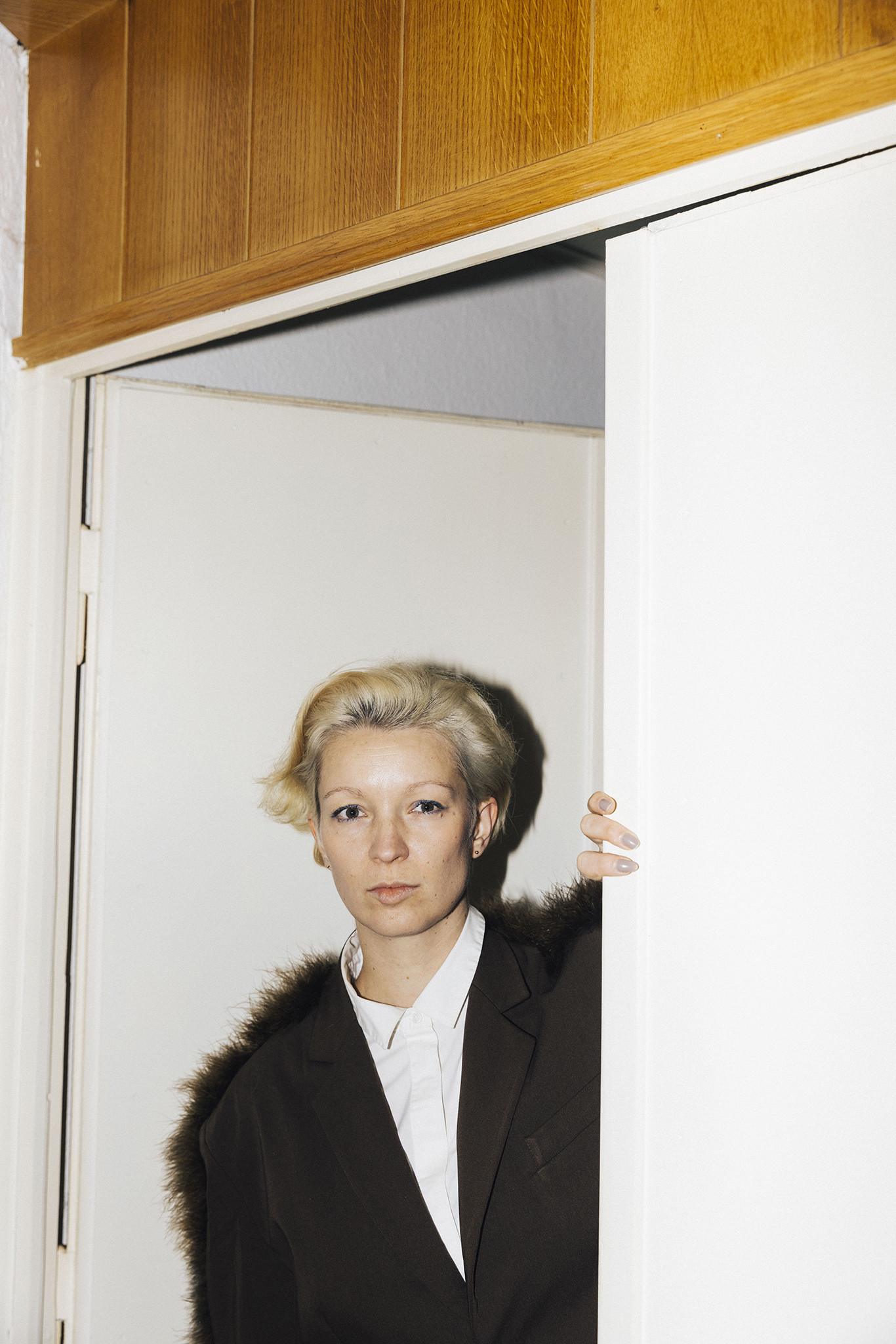
The Voluntary Chancellor, 2023. Photography: Eike Walkenhorst
Alix: Since 2021, you have delivered annual New Year speeches on Instagram Live. This allows you to reflect on the past year, draw conclusions from events, and share positive messages full of love and empowerment. Is it because you feel our politics do not convey this kind of love to the people?
Ayla: The practice of my role as a speaker makes sense in this collective moment of reflection and projection at the end of the year, as it aligns with the universal and traditional practice of looking back at what has been and forward to what can be done differently. While it's common for presidents and prominent figures to speak of hope for a better future, I've realised that the promised hope often lacks a commitment to active efforts and rather serves capitalism than empowering all forces. In my New Year's address for 2021 – my very first address in this role – I concluded with the words 'Love radically and tenderly,' calling upon all of us to collectively articulate and pursue ambitions for improvement, driven by a love that holds us accountable to achieve changes beneficial to all. In 2022, I began and ended my speech with the following exclamations: 'Power to the people! Let’s not give in to fear, ever!' I aimed to pay tribute to all the efforts of empowerment during that year, demanding equality and standing against violence and oppression – and yes, also to convey a message of hope that is full of support and care for these efforts, a kind of love typically not shared by those in power.
Alix: In your initial New Year speech, you spoke in German, then switched to English the following year. Was it because you felt that your message should transcend Germany's borders?
Ayla: In 2022, we experienced a more international moment with impactful movements worldwide, such as against the Russian attack on Ukraine and demonstrations advocating for equality, justice, and liberal values, like the protests in Iran. This collective energy created a universal sentiment. As a result, I began contemplating German politics within the context of the European Union and global affairs, particularly in connection with the Feminist Foreign Policy announced by the now Foreign Minister Annalena Baerbock. Therefore, I switched to English — not solely because I was not in Germany at that time but to position myself as a Voluntary Chancellor within an international context. I believe my proposal to articulate and present taking on political representation voluntarily as an alternative to the lack of unifying leadership in current global politics can serve as a role model in certain aspects; hence, it requires reflection on the international stage.
Alix: Why do you think that?
Ayla: For several reasons. Firstly, I'm concerned about the evolving global political landscape, where polarisation and radicalisation based on fears and ignorance are prevalent. Having grown up with the idealistic notion of forming the European Union based on the representation and maintenance of equal rights and inclusive values — the foundation of the European idea of democracy – the current significant differences in leadership across member states pose a threat not only to its cohesion but also to the very idea of democracy. Secondly, Germany, holding a central economic and political position within this union, often presents itself as a neutral mediator and peacemaker. This suggestion seems absurd, especially considering that Germany's economy benefits from global conflicts. Furthermore, I don't believe there's any form of true neutrality in this world. Instead, it's a crucial moment to take a firm stance for, first and foremost, equality, which leads to freedom, justice, inclusion, and all the values our democracies stand for. With the proposition of a Voluntary Chancellor I want to embody the potential of a unifying force grounded in values such as the ability to disagree, to speak up, to fight for equality — I am not striving for neutrality, but to be an active participant who acknowledges the necessity of independent and collective thinking.
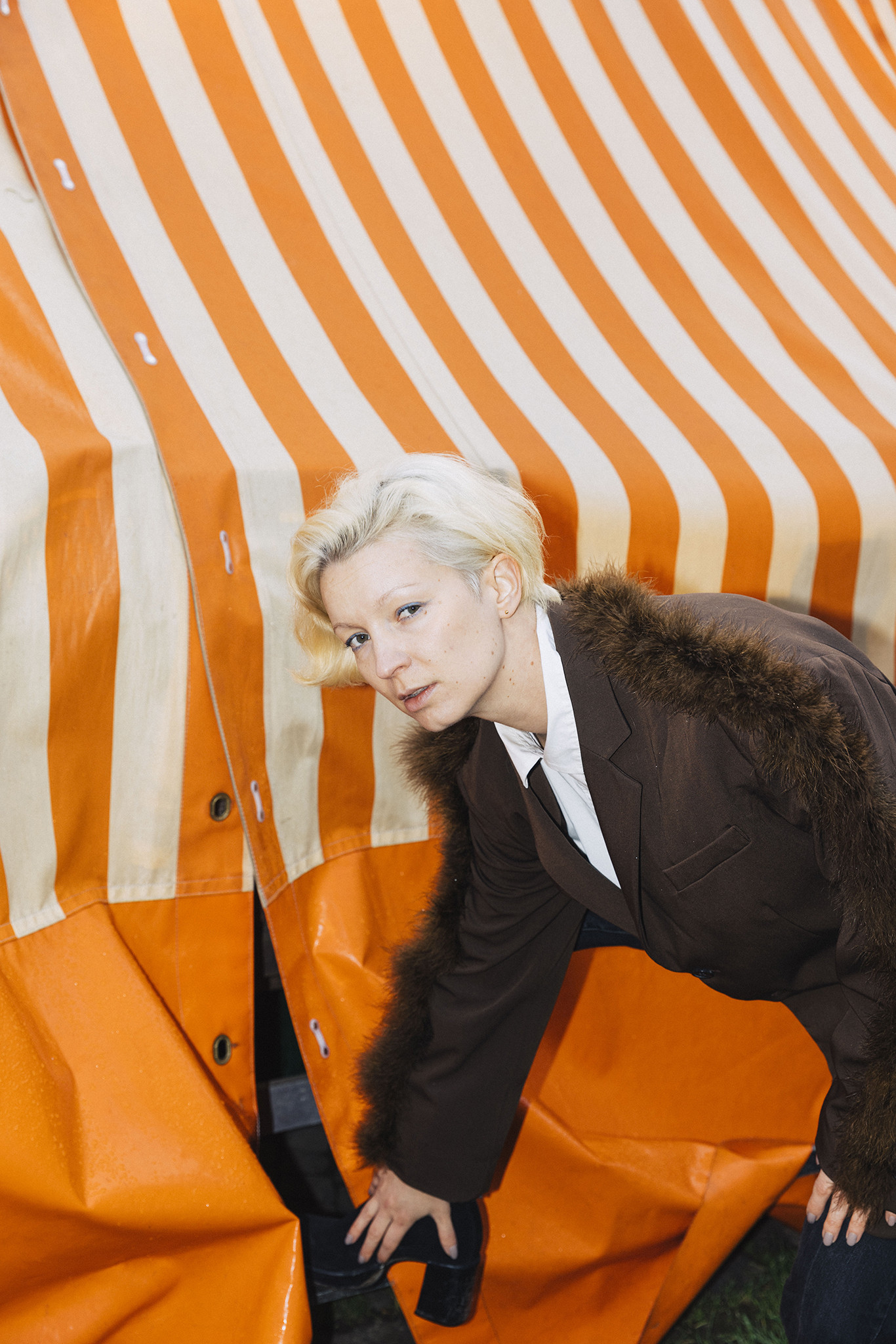
The Voluntary Chancellor, 2023. Photography: Eike Walkenhorst
Alix: Speaking of inclusion, the Voluntary Chancellor doesn't seem to adhere to a specific gender and wears campy clothing. How do you balance their appearance and the gravity of their words?
Ayla: The appearance is important to emphasise the message! How I choose my outfit has a lot to do with queering the conventional notion of authoritative behaviour and patriarchal representation. We know that official imagery of authority is uniform, as men of power clearly come in a suit. I wanted to wear a suit without embodying a specific male archetype, and I certainly didn't want to present myself as a kind of businesswoman adopting a masculinised sense of power. People possess a rainbow of forms and expressions — at least in Germany– and I want to portray this diversity as empowerment.
Alix: So you are blurring the lines?
Ayla: Yes, I am trying to make myself more permeable. With my second outfit, I drew inspiration from the appearance of former German Chancellor Helmut Kohl in the 1990s. Together with stage and costume designer Katharina Pia Schütz I combined an oversized brown suit with a pink tie and added what resembled downy feathers to the outline of the wide-shouldered jacket. This fluffiness resolved the authoritative figure. We literally softened its edges!
Alix: Also, by proclaiming yourself the Voluntary Chancellor, you claim a position in which you show people that everybody can commit themselves and let their voices be heard. To what extent is this important to you?
Ayla: My position advocates for equal participation, presenting myself as a part of the multi-voiced crowd rather than representing an individual opinion. Naturally, I employ my own understanding and imagination to articulate words that champion a diversity of perspectives and voices linked to values and ideals that don't exclude anyone. Determining which of these values and ideals are non-exclusive is challenging since most are rooted in inequality. We do not share the same opportunities, visibility, and rights. Therefore, taking on the role of the Voluntary Chancellor involves engaging in dialogue, acknowledging the challenge of questioning rhetorics of power and representation, and reevaluating the concepts of leadership and role modelling.
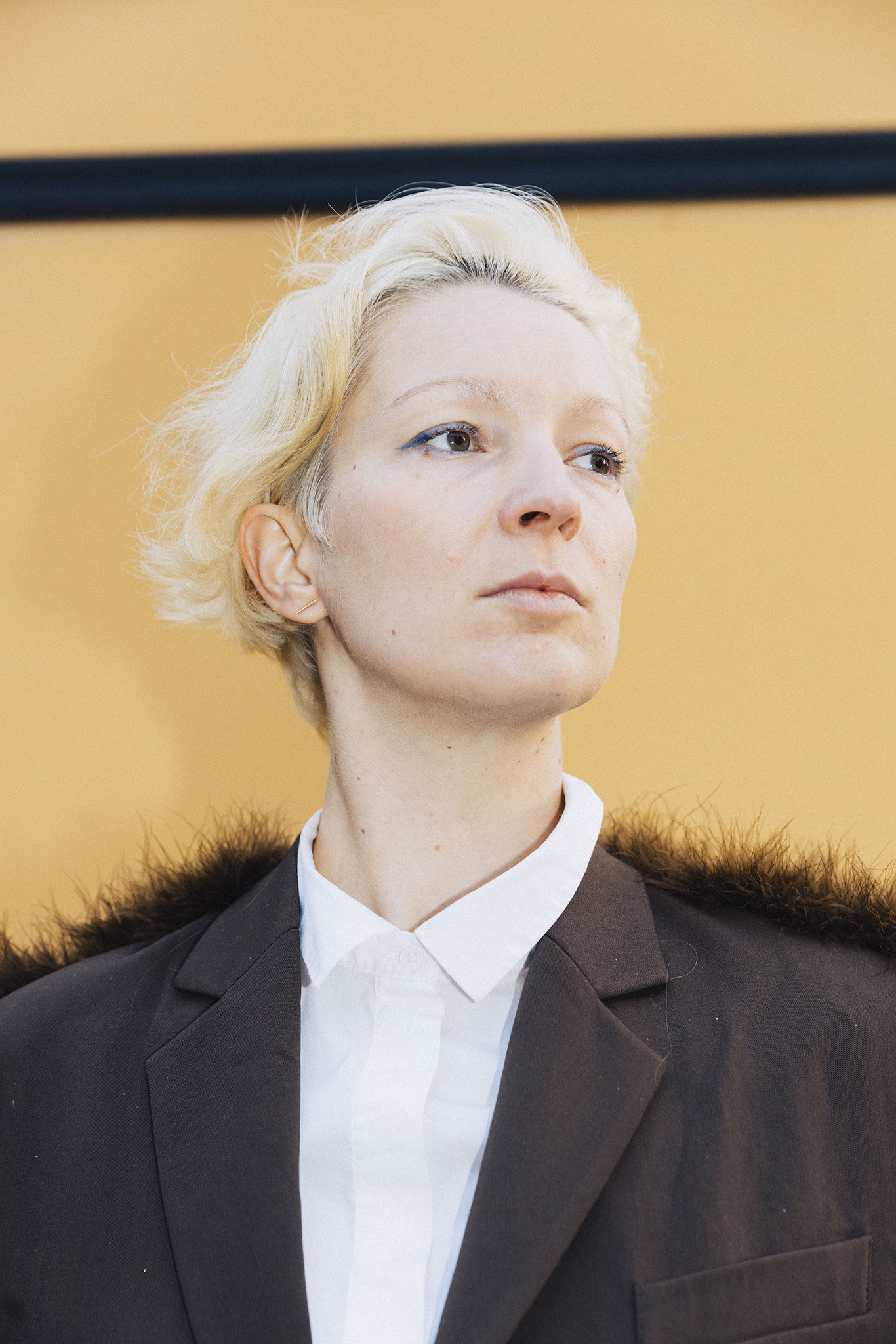
The Voluntary Chancellor, 2023. Photography: Eike Walkenhorst
Alix: So when you are speaking as the Chancellor, you are not alone. You are talking to someone and you expect to have a conversation.
Ayla: Yes, and that is why I am very careful about using the figure of the Voluntary Chancellor as an alter ego because I am not performing anything rehearsed or different from my own experience and perspective. The appearance and interaction of the Chancellor are rather dependent on actual events and their reflection, based on what I can observe and understand. However, it is challenging to speak for other people. I appreciate the way Vietnamese-American filmmaker and writer Trinh T. Minh-ha described her practice of observing and documenting other people’s experiences as "speaking nearby." Perhaps this relates to how I see myself in the role of the Voluntary Chancellor. I am not trying to represent what people think or should think, but I would like to reflect back and be translucent in the face of current political shifts and challenges that we should all be capable of understanding.
Alix: The position you are taking is therefore ambivalent. The German Chancellor speaks for the people, but you choose to speak nearby, like Trinh T. Minh-ha. How do you reconcile these two ideas?
Ayla: I would go even further: I am not merely speaking nearby; I would say I am speaking from within. My aim is to speak amidst a diversity of voices rather than summing them up into one. Therefore, I am not just reflecting on what I observe and sharing that experience; instead, I am striving to speak up for the differences we can all make by understanding ourselves as active contributors to the current experience and collaborators on the behalf of equality for all.
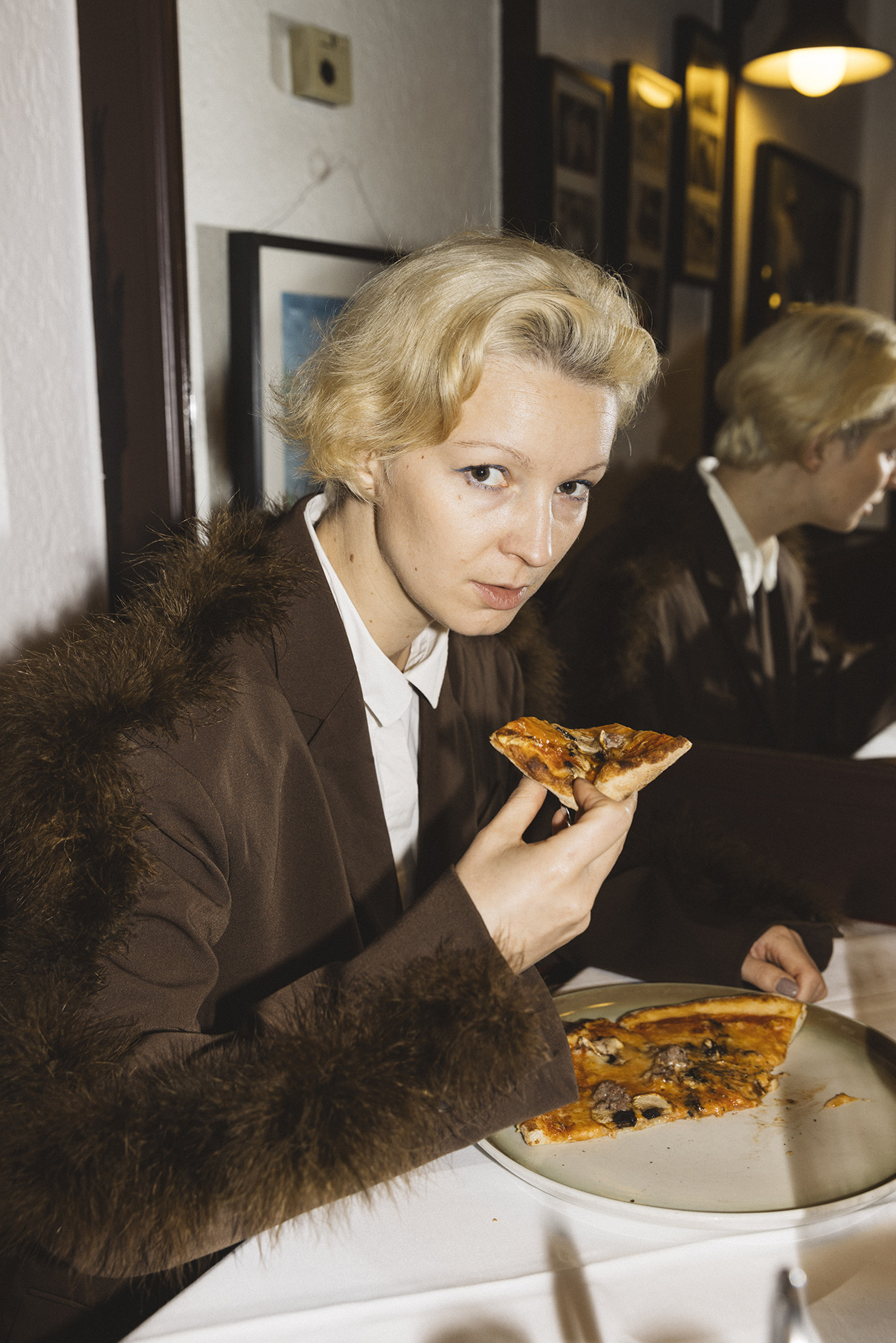
The Voluntary Chancellor, 2023. Photography: Eike Walkenhorst
Alix: Your Voluntary Chancellor exists between glitter and suits, irony and honour, fiction and reality. I can see how this theme weaves through many of your artworks, navigating the glamorous and scary lines between fiction and reality. It reminds me of what Jean Dubuffet mentioned in his book Asphyxiante Culture. He asserted that it's not crucial whether what you think about is real or will happen. The key is that by thinking about it, you make it exist in some way, creating a path to walk on. But if you don't think about it, you can't walk it.
Ayla: It is exactly what I work on and advocate for. The idea of becoming the Voluntary Chancellor of Germany is undoubtedly fiction, but by taking on this fictional character, I encounter questions that I must address authentically: What do I want to say about the past year, how do I position myself regarding the events, as a German and in this political climate? What do I hope for the continuation of history? What are my personal considerations and intentions regarding this role, this office, and the idea of informing people about the power they possess? Therefore, I believe that the interplay between fiction and reality in my case is primarily about promoting a different kind of future thought, one that you can only advocate for if you can imagine it. You must have an idea of how to change reality. I pursue this by creating possibilities of shared imagination that allow us to actively and collectively change and challenge our different realities by speaking from within our own experiences, working together to articulate new visions and hopes – loving radically and tenderly while claiming power as people, fighting for equality, and employing the fundamental idea of democracy. This is what I, as the Voluntary Chancellor of the Federal Republic of Germany, stand for. This is what I try to bring into action by delivering speeches that reflect and project the potential for real change.
Tune in on Instagram live for the New Year's speech 2023
31/12/2023, 10pm: @aylapierrotarendt
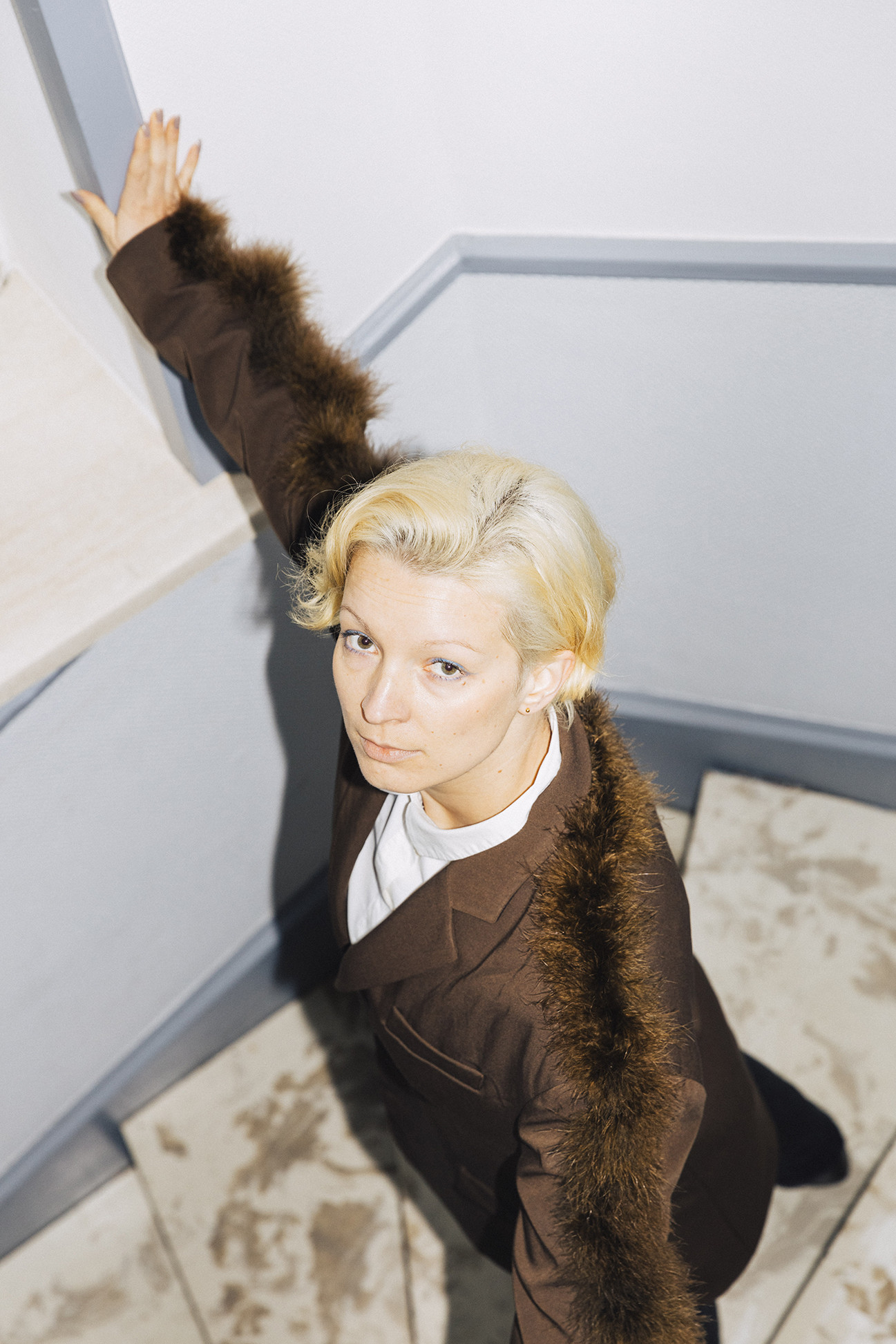
The Voluntary Chancellor, 2023. Photography: Eike Walkenhorst
Alix Di Jusco is a writer and curator based in Nîmes, France, currently studying at the École Supérieure des Beaux-Arts de Nîmes. His first novel Le Rouge was published in 2021.
Ayla Pierrot Arendt is an artist and director based in Frankfurt am Main, Germany. With a background in visual arts and choreography, Ayla has a strong interest in expressing various forms of assembly, protest, and diversity through performance and video production. This involves exploring possibilities for collective thinking, rethinking, overwriting, and claiming representations of power, history, values, and ideals.